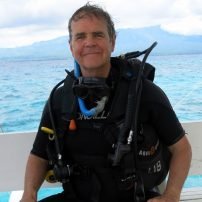
Coldfish
Potential benefits and risks of borealisation for fish stocks and ecosystems in a changing Arctic Ocean
Description
The Coldfish project uses fish species in the Barents Sea sector of the Arctic Ocean to help understand how the large-scale structure of this ecosystem responds to changes in summer sea-ice extent and fish community structure driven by climate change.
Opening up of Arctic waters with the loss of sea ice cover will affect the sources and fluxes of organic carbon which sustain all life and are extensively mediated by fishes. The warming is also making it possible for fish species from warmer waters to move northward; some native Arctic species have declined in abundance but the ultimate impact of these changing distributions on the native species is unknown. The native Arctic cod and immigrant Atlantic cod among others support fisheries, which constitute the most direct benefit that society derives from these high-latitude waters.
Working closely with the Alfred Wegener Institute in Germany and with Norway’s Institute of Marine Research, we use trophic interactions as a key ecological measure of food web structure, and stable isotope compositions as taxon-independent measures of trophic interactions. We break the challenge down into three work packages as follows:
Work package 1: Determining spatial controls on the extent of benthic-pelagic coupling and stable isotope compositions of key fish species
Within this work package we will:
- Produce maps of spatial variation in stable isotope compositions of benthic and pelagic consumers
- Identify potential biogeochemcal mechanisms driving spatial variability in isotopic composition
- Estimate spatial patterns in the strength of benthic-pelagic coupling and their relation to ecological drivers
- Determine the proportional dependence on ice algal production in fish from the Marginal Ice Zone
- Compare empirical data on spatial variation in isotopic compositions with predictions from isotope-enabled ecosystem models
Work package 2: Defining the isotopic niche traits of key fish species and potential drivers of change
Within this work package we will:
- Describe isotopic niches of the dominant demersal and pelagic fishes in the Barents Sea
- Identify relationships between trophic niche descriptors, trophic redundancy and ecological and environmental drivers
- Determine proportional contribution of ice-algae to fish production
- Identify fish species with dietary plasticity and those dietarily unresponsive to change
Work package 3: Comparing metabolic, behavioural and growth traits of resident Arctic and northward-moving boreal fishes
Within this work package we will:
- Define metabolic and growth effects of temperature and sea conditions in polar and Atlantic cod.
- Identify areas amenable to poleward expansion of boreal fish and as refugia for polar fishes
- Identify poleward seasonal migration of Atlantic cod and limits imposed by field metabolic costs
- Quantify the potential risk of failure of the Transpolar Drift advection for juvenile polar cod in polar refugia
Lead Investigators
-
 View full profile
View full profileProfessor Nicholas Polunin
Co-lead investigator, Newcastle University
I am primarily a macro-ecologist interested in large-scale patterns of marine benthic community structure and drivers of these, especially those of food webs as revealed by stable isotope data. My recent work includes a wide range of locations including the Southern Ocean, North Sea and Indian Ocean, and this has long had strong links with policy and with other disciplines including the social sciences. I am the co-lead investigator of the Coldfish project.
-
 View full profile
View full profileDr Hauke Flores
Co-lead investigator, Alfred Wegener Institute (AWI)
Dr Hauke Flores is a sea ice ecologist and group leader at AWI. He has been working as a scientist on sea ice-influenced ecosystems in the Polar Oceans since 2009. Hauke is co-lead investigator of the Coldfish project. In the project, he supervises junior team members, coordinates the exchange of project results between UK and German partners, and facilitates exchange with other projects at AWI, especially regarding MOSAiC, ensuring that project results are made available to decision makers.
Related Articles
-
UK and Germany combine forces to fund crucial Arctic science
For the first time, the UK and Germany have joined forces to investigate the impact of climate change on the Arctic Ocean. The UK’s Natural Environment Research Council (NERC) and Germany’s Federal Ministry of Education and Research (BMBF) have jointly invested almost £8 million in 12 new projects to carry… Read more
03 July 2018

